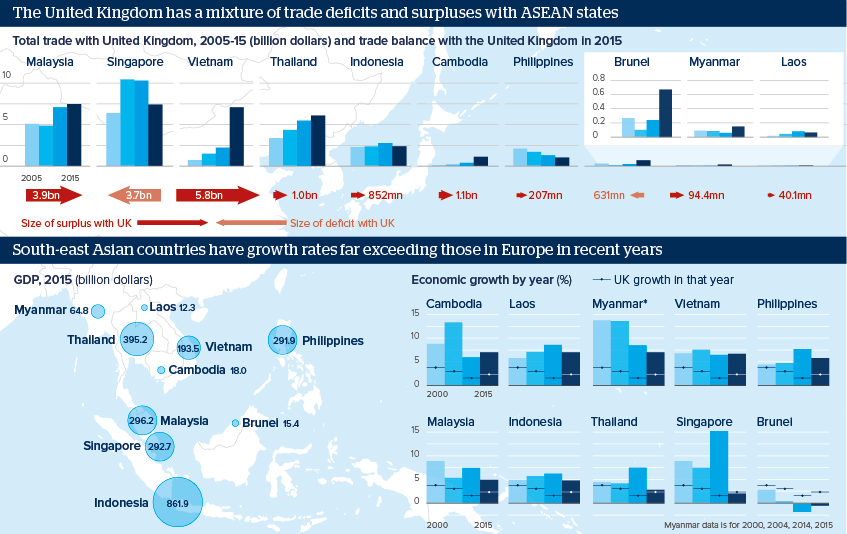UK 'pivot' to ASEAN to see more post-Brexit engagement
Brexit will add impetus to a realignment of UK foreign policy underway, and open new ASEAN-UK trade opportunities
Source: World Bank; IMF; Bloomberg; UK Government; Oxford Analytica
Outlook
Former Prime Minister David Cameron's administration began a diplomatic, trade and defence 'policy pivot' to ASEAN and South-east Asia, including counterterrorism, cyber and maritime security, research and education, pro-environment policies and promoting the rule of law.
Following the UK vote to leave the EU, Prime Minister Theresa May's government is forging a new foreign and trade policy. This will see increasing focus on South-east Asia and its growing, integrating market of 630 million people, though some ASEAN governments are authoritarian and the region faces terrorism and insurgency risks.
The post-Brexit United Kingdom will offer South-east Asian investors opportunities; UK Trade and Investment said in 2015 that South-east Asian investments into the United Kingdom valued 36.5 billion dollars by 2013.
Impacts
- Depending on the nature of the UK deal to leave the EU, ASEAN state-UK trade deals are likely in coming years.
- ASEAN-based investors will seek openings afforded by the cheaper pound; UK businesses will seek to export fintech and services.
- South-east Asian security risks and concerns over human and labour rights and governance could moderate deeper UK engagement.
- ASEAN's brand of regionalism differs in scope and nature from the centralised EU; Brexit will not cause ASEAN's demise.
See also
- Cambodia-UK free trade deal may be coming - Oct 7, 2016
- ASEAN-UK post-Brexit ties are likely to grow - Jul 5, 2016
- More graphic analysis
